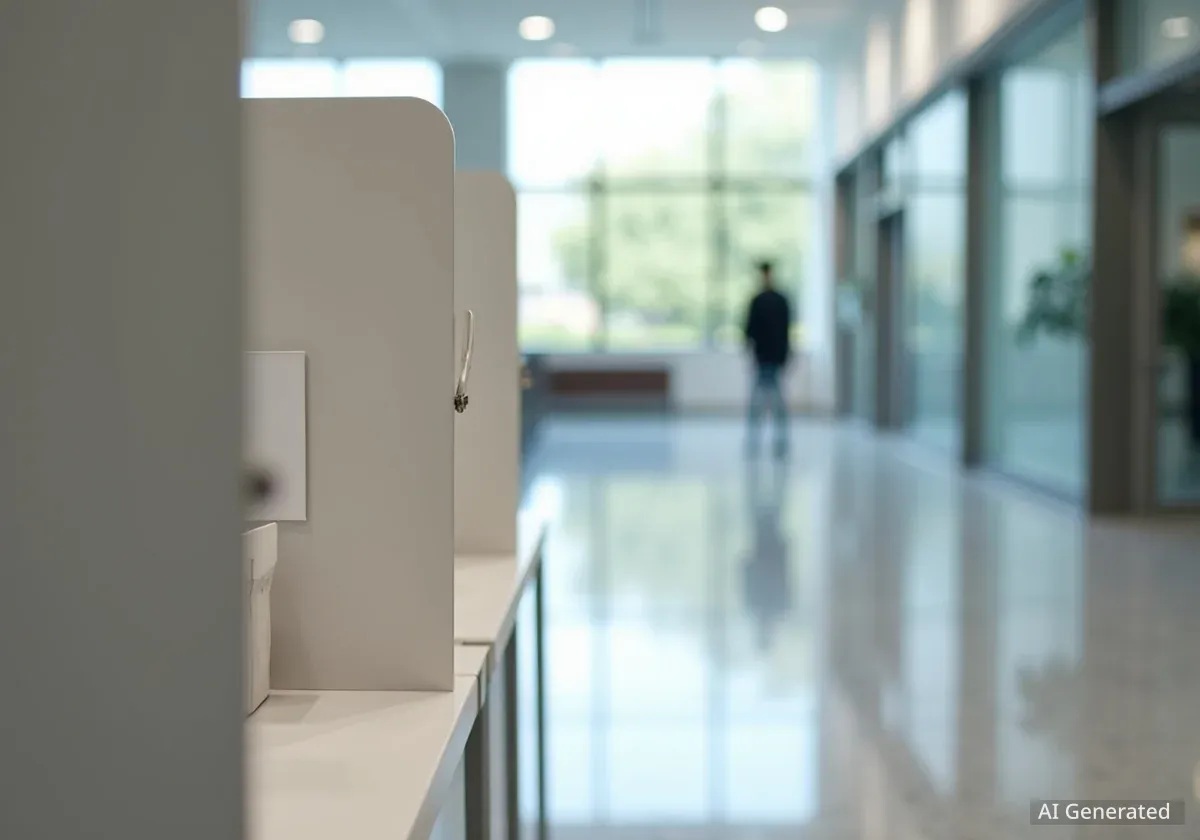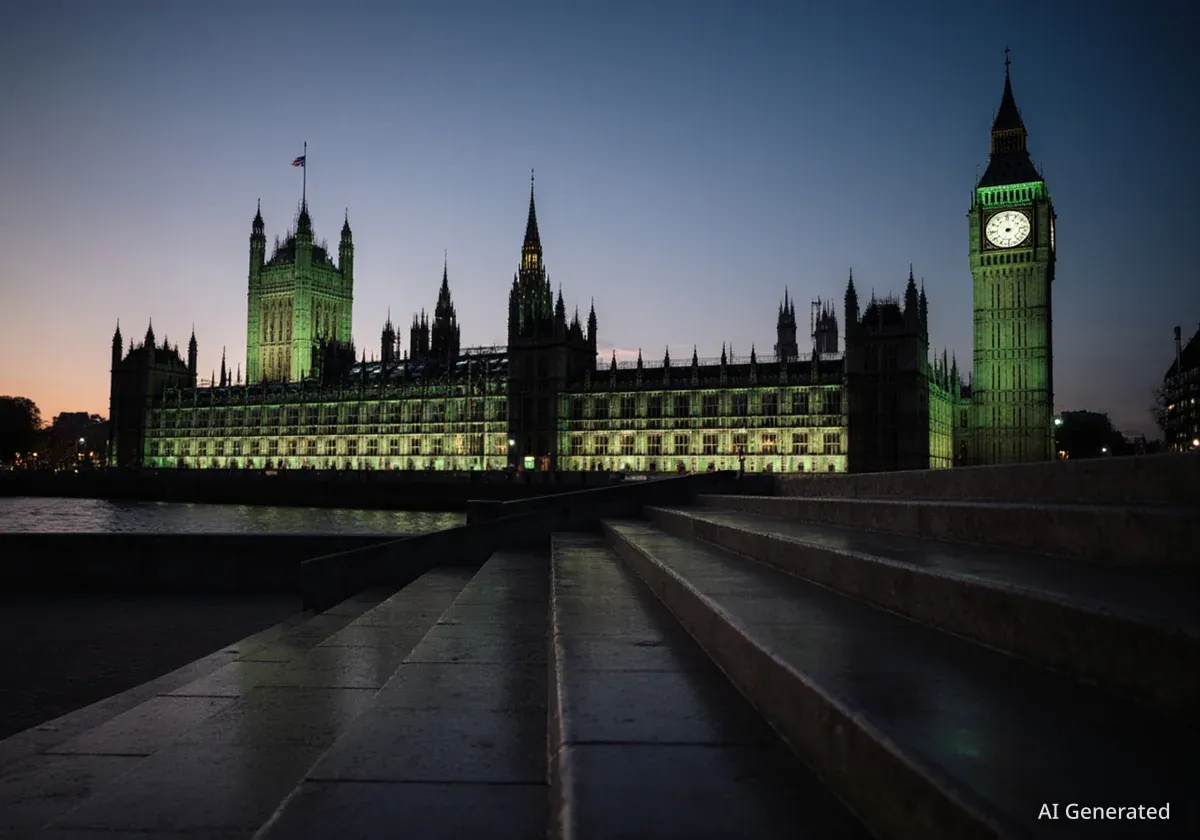Voters in the Canton of Bern are participating in a significant round of ballots today, deciding on a cantonal rent initiative and numerous municipal elections and referendums. The 'Fair and Affordable Rents' initiative is a key focus, aiming to increase transparency in rental pricing across the canton.
Key Takeaways
- The Bernese electorate is voting on the 'Fair and Affordable Rents' rent initiative.
- This initiative seeks to mandate the disclosure of previous rental prices for new tenants.
- The disclosure rule would apply when the vacancy rate falls below 1.5 percent.
- Several municipalities are holding elections for local councils and presidencies.
- Various communities are also voting on specific financial credits and urban development projects.
Cantonal Rent Initiative Seeks Transparency
The central cantonal ballot item is the 'For fair and affordable rents thanks to transparent previous rent' initiative. This proposal, launched by the Bernese Tenants' Association, aims to address the current lack of public information regarding former rental prices. Often, new tenants in Bern do not know what the previous tenant paid for the same property. The initiative seeks to change this by making previous rent amounts mandatory to disclose.
The proposed form requirement for disclosing previous rents would come into effect under specific market conditions. It would apply if the vacancy rate in the canton drops below 1.5 percent. This threshold is intended to ensure the measure targets periods of tight housing supply, where tenants may have less bargaining power.
Background on Rent Transparency
Similar systems are already in place in other Swiss cantons. These regulations aim to prevent excessive rent increases between tenants by providing a benchmark. Experiences from these cantons suggest that such transparency can help stabilize rental prices and protect tenants from arbitrary hikes. The Bernese initiative seeks to bring similar protections to the canton.
Municipal Elections Across the Canton
In addition to the cantonal initiative, several municipalities are holding important elections. These local polls will determine the composition of town councils, parliaments, and even mayoral positions in various communities. The outcomes will shape local governance and policy for the coming terms.
Key Municipal Elections Underway:
- Herzogenbuchsee: Voters are electing their municipal council. The FDP party, which lost its seat four years ago, aims to re-enter the council.
- Köniz: Elections are being held for the municipal presidency, municipal council, and parliament. The Köniz SP party is working to secure a second council seat, which would give the left a majority in the body. The re-election of current Municipal President Tanja Bauer (SP) is widely expected.
- Konolfingen: Six out of seven council seats are up for grabs, indicating significant potential changes in local leadership.
- Lyss: New alliances are forming for the municipal council and parliament elections. The Centre, GLP, and now also the EVP parties are collaborating in this election cycle.
- Nidau: The city is electing a new city president, municipal council, and city council. Current City President Sandra Hess is not seeking re-election. Four male candidates are vying for her successor.
- Oberdiessbach: The FDP party, after decades of political dominance, has not put forward any candidates for the municipal council elections, leaving a void.
- Thunstetten: Residents are voting for their municipal council.
"The municipal elections are crucial for local development. New alliances and shifts in party representation can significantly impact community projects and services," stated a local political observer.
Local Referendums on Key Projects
Beyond elections, several municipalities are holding referendums on financial credits and specific development projects. These votes directly impact local infrastructure, services, and urban planning. Citizens have the opportunity to approve or reject significant spending and policy decisions.
Referendum Highlights
Many local referendums focus on essential infrastructure updates and community development. These decisions often involve substantial public funds and have direct impacts on residents' daily lives, from utility services to educational facilities.
Key Municipal Referendums:
- Aarwangen: A credit of CHF 2.42 million for the introduction of Smart Meters, a system for intelligent electricity meters. This initiative aims to modernize the local energy infrastructure.
- Bern: A commitment credit for the performance contract 2026-2029 with the Association of Bernese Communities (Vereinigung Berner Gemeinwesenarbeit). This funding supports vital community work.
- Heimberg: A vote on the "Louelipark" development plan, which proposes the construction of 300 new apartments. This project addresses local housing needs.
- Lyss: Two community referendums. One concerns a credit for the purchase of a property at Marktplatz 10. The second is for a temporary facility at the Herrengasse school building.
- Langnau: A credit of CHF 2.6 million for a new Fansrüti water reservoir. This investment is critical for ensuring reliable water supply.
- Münchenbuchsee: A vote on the Schönegg area development plan. This project involves significant urban planning decisions.
- Rüderswil: A commitment credit for the renovation of the Than school building in Zollbrück, totaling CHF 5.26 million. This aims to improve educational facilities.
- Roggwil: A CHF 17 million credit for new school buildings and a new organizational regulation. This is a major investment in the local education system.
- Toffen: A credit for the renovation of Bahnhofstrasse, which will improve local road infrastructure.
- Wohlen: A vote on a controversial construction project on the Sahlimatte, proposing 65 to 70 new apartments. This project has sparked local debate.
These diverse votes highlight the active participation of citizens in the Canton of Bern in shaping both cantonal policy and their immediate local environments. The outcomes of today's ballots will influence housing, infrastructure, and local governance for years to come.
The Importance of Local Voting
Local elections and referendums are the cornerstones of direct democracy in Switzerland. They allow residents to directly influence decisions that affect their daily lives, from school funding to urban development. High voter turnout underscores the community's engagement in these processes.
Looking Ahead: Impact of Today's Decisions
The results of today's votes, particularly on the rent initiative, could have significant implications for the housing market in Bern. Increased transparency in rental prices aims to empower tenants and foster a fairer market. Similarly, the outcomes of municipal elections will set the strategic direction for local communities, affecting everything from public services to new construction projects.
Analysts will closely monitor the results to understand shifts in political landscapes and public sentiment. The decisions made today reflect the priorities and concerns of the Bernese electorate regarding social policy, economic development, and local quality of life.




